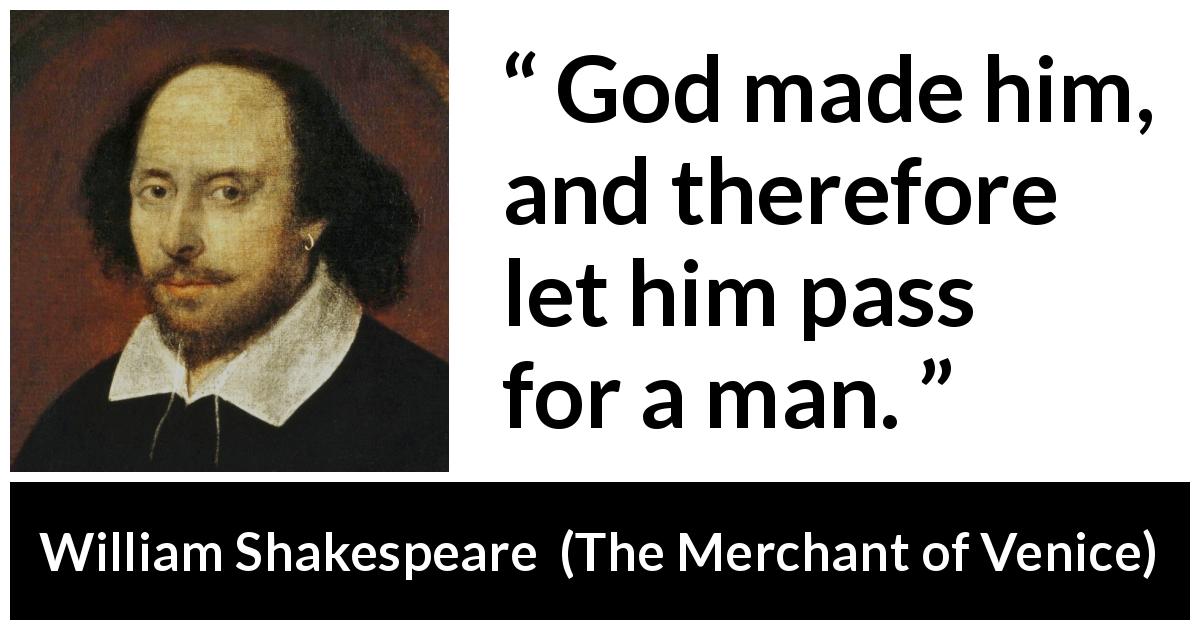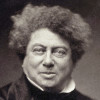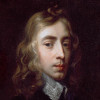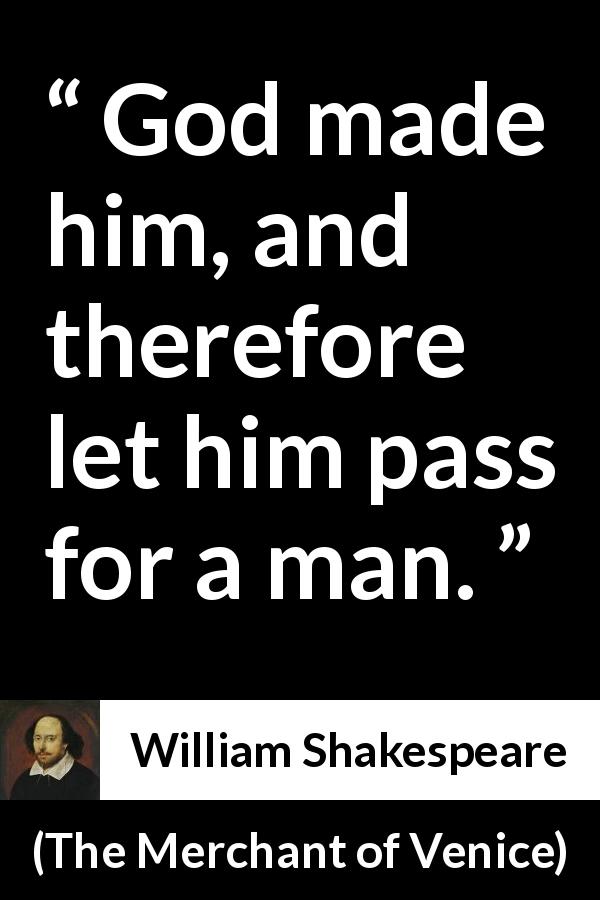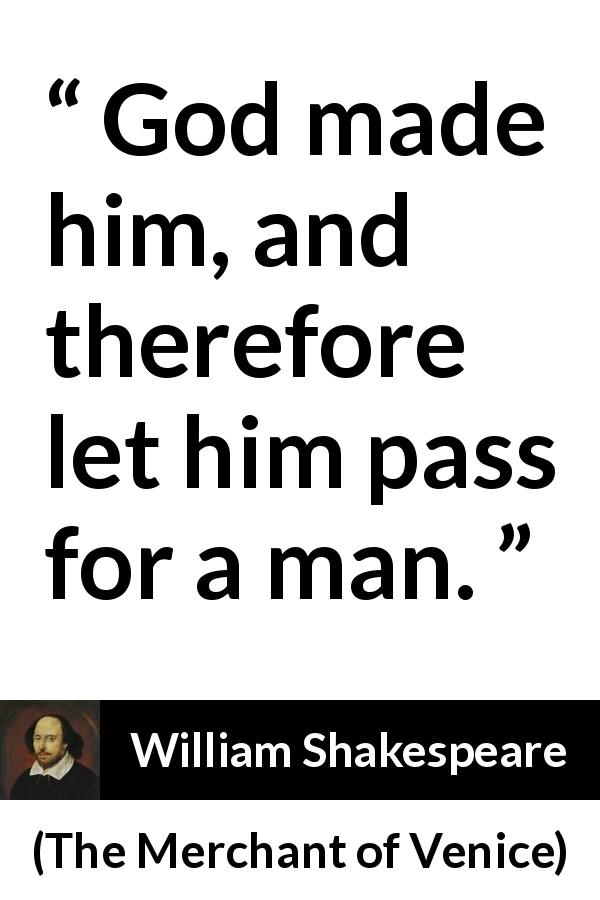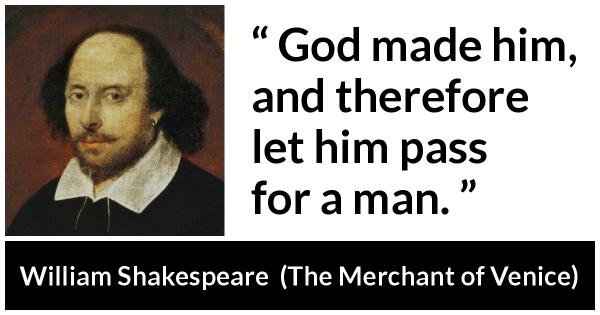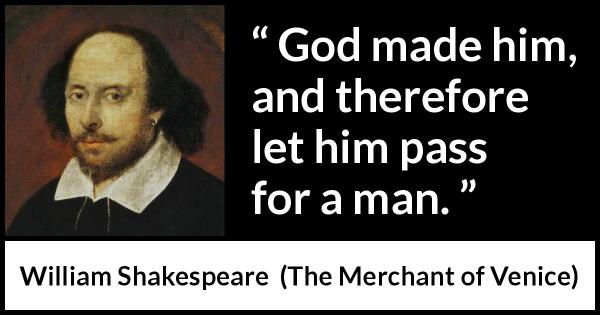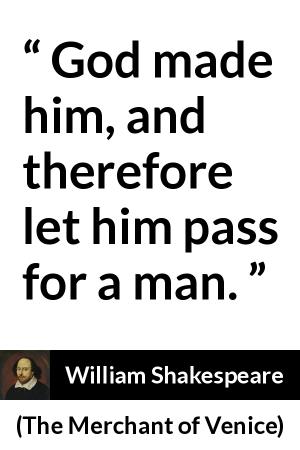“ God made him, and therefore let him pass for a man. ”
William Shakespeare, The Merchant of Venice (1600). copy citation
| Author | William Shakespeare |
|---|---|
| Source | The Merchant of Venice |
| Topic | God contempt man |
| Date | 1600 |
| Language | English |
| Reference | |
| Note | Written between 1596 and 1599 |
| Weblink | http://www.gutenberg.org/cache/epub/2243/pg2243-images.html |
Context
“He doth nothing but frowne (as who should say, and you will not haue me, choose: he heares merrie tales and smiles not, I feare hee will proue the weeping Phylosopher when he growes old, being so full of vnmannerly sadnesse in his youth.) I had rather to be married to a deaths head with a bone in his mouth, then to either of these: God defend me from these two
Ner. How say you by the French Lord, Mounsier Le Boune? Por. God made him, and therefore let him passe for a man, in truth I know it is a sinne to be a mocker, but he, why he hath a horse better then the Neopolitans, a better bad habite of frowning then the Count Palentine, he is euery man in no man, if a Trassell sing, he fals straight a capring, he will fence with his owne shadow. If I should marry him, I should marry twentie husbands: if hee would despise me, I would forgiue him, for if he loue me to madnesse, I should neuer requite him
Ner. What say you then to Fauconbridge, the yong Baron of England?” source
Ner. How say you by the French Lord, Mounsier Le Boune? Por. God made him, and therefore let him passe for a man, in truth I know it is a sinne to be a mocker, but he, why he hath a horse better then the Neopolitans, a better bad habite of frowning then the Count Palentine, he is euery man in no man, if a Trassell sing, he fals straight a capring, he will fence with his owne shadow. If I should marry him, I should marry twentie husbands: if hee would despise me, I would forgiue him, for if he loue me to madnesse, I should neuer requite him
Ner. What say you then to Fauconbridge, the yong Baron of England?” source
